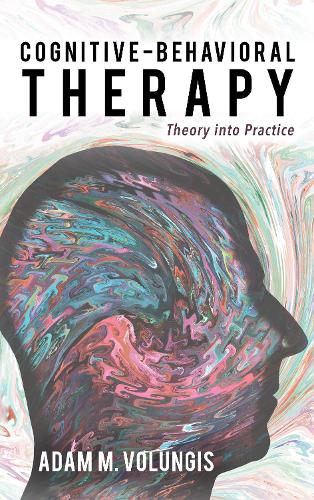
Cognitive-Behavioral Therapy: Theory into Practice
(Paperback)
Available Formats
Publishing Details
Cognitive-Behavioral Therapy: Theory into Practice
By (Author) Adam M. Volungis
Bloomsbury Publishing PLC
Rowman & Littlefield Publishers
10th August 2018
United States
Classifications
Tertiary Education
Non Fiction
Psychotherapy: counselling
616.891425
Physical Properties
Paperback
384
Width 152mm, Height 227mm, Spine 13mm
458g
Description
Cognitive-Behavioral Therapy: Theory into Practice provides a formal translation of CBT theory in practice by addressing how to apply core competencies for therapists/psychologists serving mental health clients. This book is designed for graduate students in training and mental health professionals who want to learn the basic foundations of applied CBT, but itis also an invaluable resource for experienced practitioners looking to improve their skills. Adam M. Volungis reviews the most common and pertinent CBT skills necessary for most clients encountered in practice, from establishing a sound therapeutic alliance and structuring sessions to modifying negative automatic thoughts and behavioral exposure.
Each skill is first presented with a sound evidence-based rationale and then followed by specific steps. Most of the CBT skills covered are accompanied by therapist-client therapy dialogue vignettes and many hours of supplemental videos, worksheets for clinical use, and PowerPoints, which can be accessed on the companion website. Each chapter also includes discussion questions and activities that provide the opportunity for students to practice each CBT skill individually or with peers, while tables and figures conceptualize and summarize key themes and skills.
Reviews
Cognitive-Behavioral Therapy: Theory into Practice is a clearly written text that includes many concrete case examples and therapist-patient dialogues. This book will serve as a valuable resource and guide for any student and trainee in clinical psychology and counseling. -- Stefan G. Hofmann, Ph.D., professor of Psychology, Department of Psychological and Brain Sciences, Boston University
This book is a wonderful addition to the basic texts teaching cognitive-behavioral therapy (CBT). It uses video, vivid clinical examples, and learning exercises, which make it ideally suited as a classroom text. One of its most distinguishing features is the great care taken to provide explicit, step-by-step instructions to the novice therapist. -- Donna M. Sudak, MD, president, American Association of Directors of Psychiatric Residency Training; and professor of Psychiatry, interim director of Training, and director of Psychotherapy Training, Drexel University
Dr. Volungis has produced an excellent resource for teaching CBT to evolving practitioners. Graduate psychology students and psychiatric residents in particular (as well as their instructors) will be well-served by its logical organization and completeness. I am looking forward to using it with our trainees. -- Robert Carey, PhD, ABPP, associate clinical professor, University of Massachusetts Medical School
Cognitive-Behavioral Therapy presents the fundamentals of CBT and guides the reader in understanding how to implement these principles with sensitivity and flexibility. Volungis clearly explains both the science and art of conducting CBT, guiding the reader through the process of understanding and developing a wide range of skills that are essential to skillful conducting. This book will be valuable for students who are beginning to develop their skills and seasoned clinicians who are interested in refining their skills. It is an excellent resource for graduate students and experienced professionals who want to provide excellent CBT for their clients. -- Leonard A. Doerfler, PhD, professor and director, Counseling Psychology Program, Assumption College
Author Bio
Adam M. Volungis is a counseling psychologist and assistant professor in the Clinical Counseling Psychology Program at Assumption College. He earned his PhD in counseling psychology at Indiana University Bloomington in 2011. He has been a licensed therapist for more than 10 years, working with a variety of populations using CBT. His research has been published widely, including in The Counseling Psychologist, International Journal of Mental Health and Addiction, and the North American Journal of Psychology. He is also a member of the Association for Behavioral and Cognitive Therapies and the American Psychological Association
